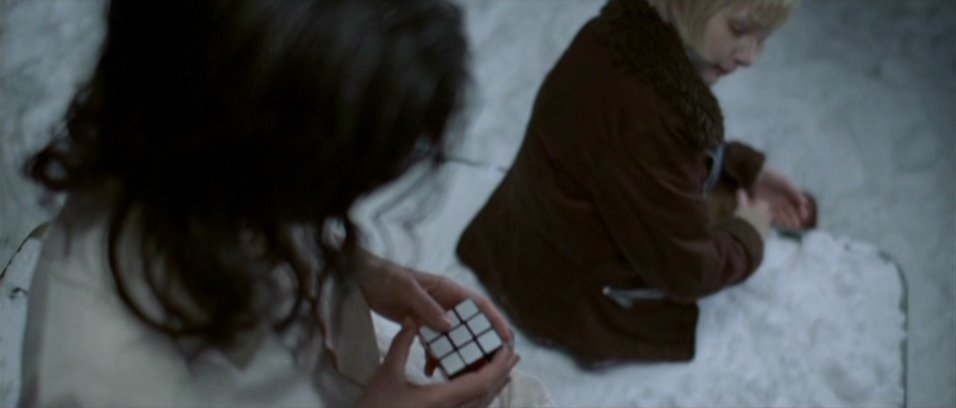Date read: 2.6.09
Read from: Originally borrowed from Kakaner; now in personal collection, via Burning Building
Reviewer: Emera
At twelve, David falls asleep on a schoolbus, and meets, literally, the girl of his dreams. In real life, he grows up, marries a woman he thinks he loves, and proceeds to destroy both of their lives. He is unable to shed the belief that somewhere beyond the world he sees every day, there’s another one that’s more vital, more beautiful – and most importantly, is home to the girl whom he still glimpses in maddeningly brief and unpredictable snatches. Soon, even his waking life is invaded by the inexplicable: radio towers appear and disappear; cryptic cassette tapes appear on his welcome mat; he wakes up in his car in places that he doesn’t remember driving to. David is terrified, infuriated, and eventually obsessed by these “messages,” desperate to take control and escape a life that seems to hold no meaning except for the conviction that love lies elsewhere.
The Inside is a strange book. Though I hate to pin it down with genre terms (I know, then why am I doing it?), it’s most easily described as part psychological horror/suspense, part romance, part weird. After Kakaner lent me her copy (I bought my own later), I was haunted by it every moment that I wasn’t actually reading it, quite as obsessed as David, and a little frightened. Ultimately, I didn’t even care so much about the eventual reveals as I did about the process of getting to them, which is absolutely absorbing, often moving, and beautiful in a crazed, pained kind of way. I do think the novel falters towards the end, which I found somewhat rushed and a little incoherent, and there are certain other moments when Marion tries too hard to maintain the book’s tone, and slips into wryer-than-thou territory. Overall, though, Marion is an extremely assured writer, with a distinctive, effective voice and good control of pacing and plot.
